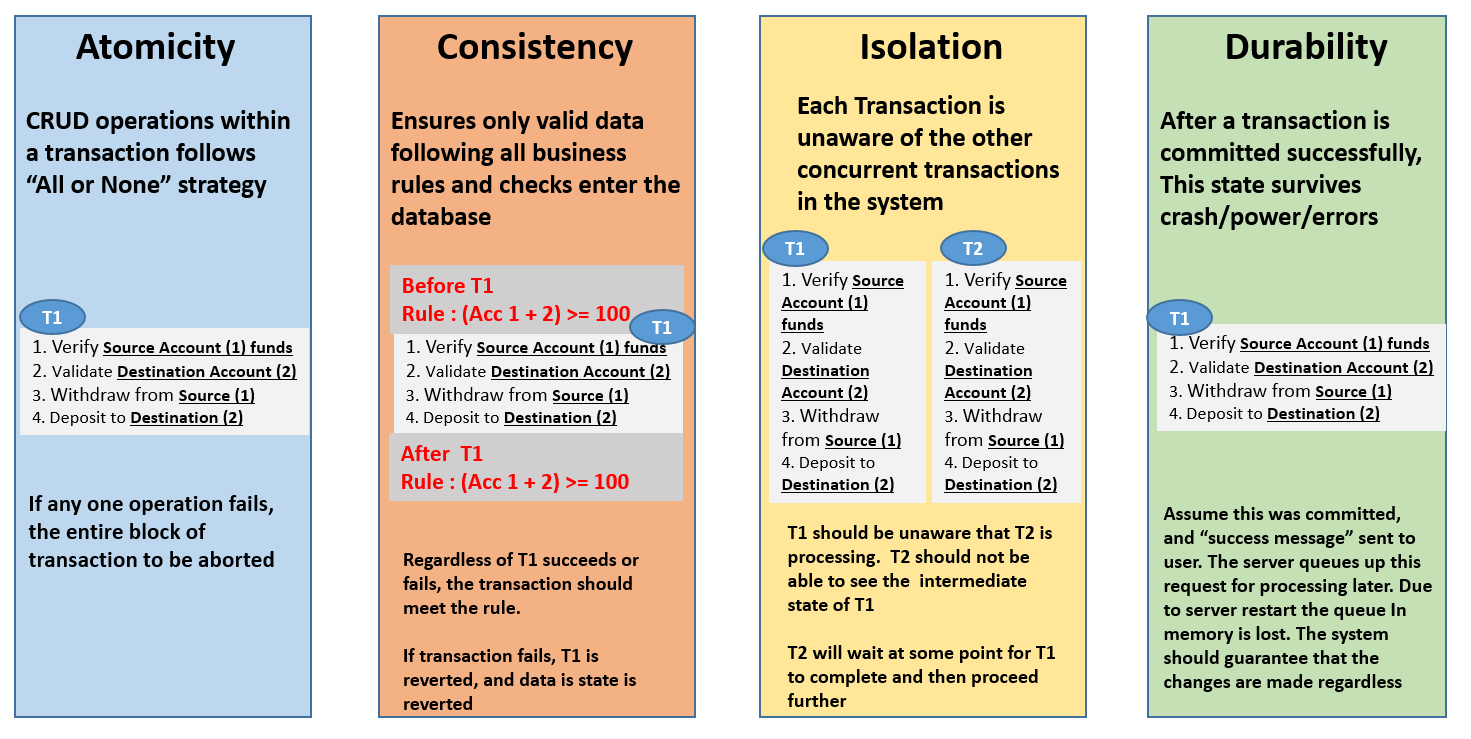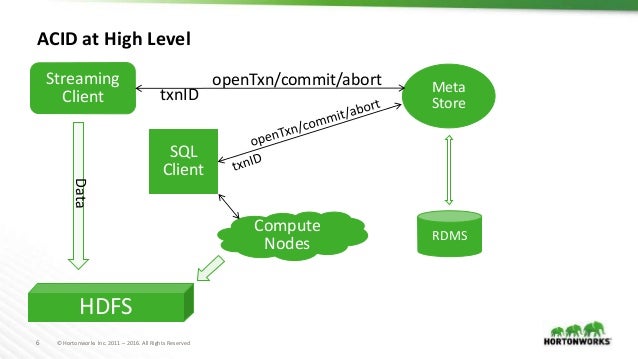
Transactions where all the operations impact only a single row (aka key) are called as single-row ACID transactions. In the context of distributed databases, ACID transactions can be internally classified into the following three flavors. The modifications must persist even in case of power loss or system failures.

Just as an inspirational leader once said, Yes We Can! This post highlights the state of ACID transactions in distributed databases today and also explains how YugabyteDB makes distributed ACID transactions work without compromising on high performance. YugabyteDB is a high-performance distributed SQL database that supports fully distributed ACID transactions across multiple rows, multiple shards, and multiple nodes at any scale. This loss of ACID properties is usually justified with a gain in performance (measured in terms of low latency and/or high throughput). While they are taken for granted in monolithic SQL/relational databases, distributed NoSQL/non-relational databases either forsake them completely or support only a highly restrictive single-row flavor (see sections below).

They simplify the complex task of ensuring data integrity while supporting highly concurrent operations.

ACID transactions are a fundamental building block when developing business-critical, user-facing applications.


 0 kommentar(er)
0 kommentar(er)
